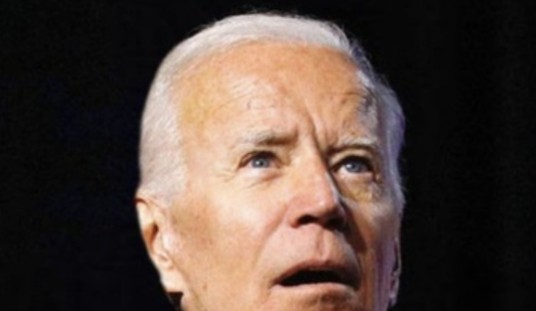Abu Abdullah watched the US destroy the Iraqi army in a shockingly short period of time in 2003, pushing the major to despair for his freedom. He attempted to pull his unit back to Baghdad, but his soldiers melted away, seeing the futility of remaining with an army that represented a government that no longer existed. Abdullah started an insurgent group that eventually became part of al-Qaeda in Iraq — but he now fights against them and on the side of the Americans who destroyed his government, even after claiming to have been beaten and mistreated by US soldiers in Abu Ghraib. Abdullah explains why to the Times of London:
After another six months he was released, but his time in captivity left him even more embittered towards the US forces and he vowed to return to the resistance. “When I arrived back in Samarra I found that a lot of things had changed. My group had become part of al-Qaeda and was killing members of the Iraqi security forces and even civilians,” he said.
Most of the people he had fought with had fled to Syria, being replaced by hired guns who were working for an influx of new commanders, many of them foreign. Mr Abdullah said that other Arab countries and Iran were helping to fund the operations.
Despite many misgivings, he rejoined the group at the end of 2005 but quickly regretted it. “I found out that my cousin had been killed because he had refused to join.” Mr Abdullah was also shown footage of two policemen being beheaded.
“I could not tolerate or accept how they were working, so in the end I fled to Syria. I felt quite disappointed with the way that the resistance had become.” After only a week Mr Abdullah returned to Iraq and took his family to Baghdad, where he used his car to work as a taxi driver. Leaving al-Qaeda meant that his life was in constant danger. Twice gunmen tried to shoot him and he was forced to move house four times.
Still opposed to the US military and increasingly against the Shia-led Government of Iraq, Mr Abdullah dreamt of starting up a fresh resistance. But in late 2007 he was approached by two uncles and a cousin who had joined a new security movement, which was established by Sunni Arab tribes who had turned against al-Qaeda in Anbar province, once the heart of the insurgency. The concept – arming local people and charging them with security for their neighbourhood – appealed to Mr Abdullah even though the group’s members, which number at least 90,000, were under the payroll of the US military.
“I started to feel that the Americans were better than the Iraqi Government at that moment. I still look at them as occupiers. My feelings towards them have not changed. But my main concern is to stop the Iraqi people’s suffering,” he said. Agreeing to help to set up branches of the so-called Awakening movement in Samarra and other towns north of Baghdad, Mr Abdullah attended his first meeting with the US military just over a week ago – something that he had resisted for months.
How do we keep the reluctant allies like Abdullah in the fold? We have to produce real improvements, as Sgt. Anthony Diaz notes already has begun. Former members of the insurgencies have not joined Awakening movements and begun working with the US because of any love of our country or our army. They join because the alternatives have already been fully explored, and they’re all worse. Only the US promises a peaceful and prosperous conclusion to the fighting, and they know that.
Not all Iraqis are so pessimistic, of course, and many have enthusiastically supported the efforts to end terrorism and sectarian fighting. The real challenge is to get the Abu Abdullahs to make that decision as well, to fight against their impulse to hate occupiers long enough to fight the real villains of AQI. AQI makes this easier by continuously demonstrating their depravity and through indiscriminate killings that set blood feuds in motion against AQI. The Americans slowly learned the lessons of tribal politics, but AQI still hasn’t figured it out, and one of the primary motivations for Abu Abdullah to switch sides was the murder of his cousin.
We need to ensure that we continue to press reconstruction efforts to establish electricity, sewage, and water systems, as well as create conditions for stable employment that doesn’t rest primarily on government sinecures. If we can use this period to create a stable small-business economy with reliable utility services and security, we can help keep the Abu Abdullahs on our side, and convince more of them to switch. That will provide the ground-up reconciliation that will eventually heal Iraq and give people a real stake in its long-term success.








Join the conversation as a VIP Member